Before 1970, Chairs in Biochemistry or Physiological Chemistry were distributed throughout the city of São Paulo in the different schools or faculties of the University of São Paulo. As part of the university reforms that took place in 1969, the decision was made to bring them all together under a single Department of Biochemistry that would join with the Department of Chemistry to form the Institute of Chemistry, officially inaugurated on the 1st of January, 1970. This unique joining of Biochemistry and Chemistry Departments has proven to be a wise decision as it created a fertile environment to combine expertises necessary comprehend the complex molecular systems that govern living systems.
During its first decade of existence, the Department of Biochemistry benefitted greatly from the Program for the Development of Biochemistry in the State of São Paulo, sponsored by FAPESP (Bioq-FAPESP). Young researchers received direct and independent funding and important decisions regarding major Departmental goals and strategies were taken collectively. Priority was given to quality scientific production and training of students, valuing scientific independence of the different groups. Initially, the Department´s faculty numbered 56 teaching staff which dwindled to 50 by the end of the decade, but whose core was made up of 20 research groups composed of well-trained researchers with doctorates, many obtained in renowned institutions overseas. Since then, the Department has demanded full-time dedication of its academic staff and has imposed strict academic standards as a defining guide to its promotion policies.
During the 80s and early 90s, the Department of Biochemistry received important support from FINEP, BID-USP and PADCT. These programs contributed to renew the instrumental infrastructure and supported a vigorous program of international exchange. During this time, the Department had established itself as the most important center of scientific production and training of human resources in Biochemistry and Molecular Biology in Brazil. In spite of these conquests, the number of faculty members was reduced to 43 during this period, a level that has been maintained ever since.
As FNDCT funds managed by FINEP dried up in the early 1990s, the shortage was compensated by the Department´s group leaders aggressively and successful obtaining funding through FAPESP Thematic Projects. This policy has stimulated associations between groups and forced the Department to reflect on its vocations and to define the areas of competence and challenges for future growth. This has led to collective initiatives that have allowed us to implant the cutting-edge infrastructure required to meet these goals.
The Department of Biochemistry currently has 42 full-time Professors, 20 technicians, 144 graduate students, 50 post-doctoral researchers and 64 undergraduate trainees. It is one of the most academically productive Departments of the University and as such, an import center Brazilian for the production of knowledge and professional training. It is our goal to forge closer links with our sister departments in other Brazilian universities and to try to rub shoulders with the best Biochemistry departments around the world.

